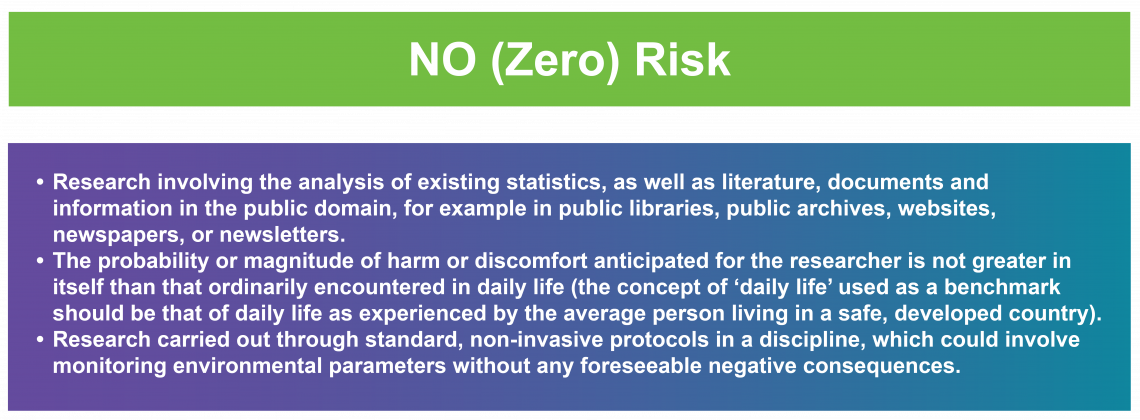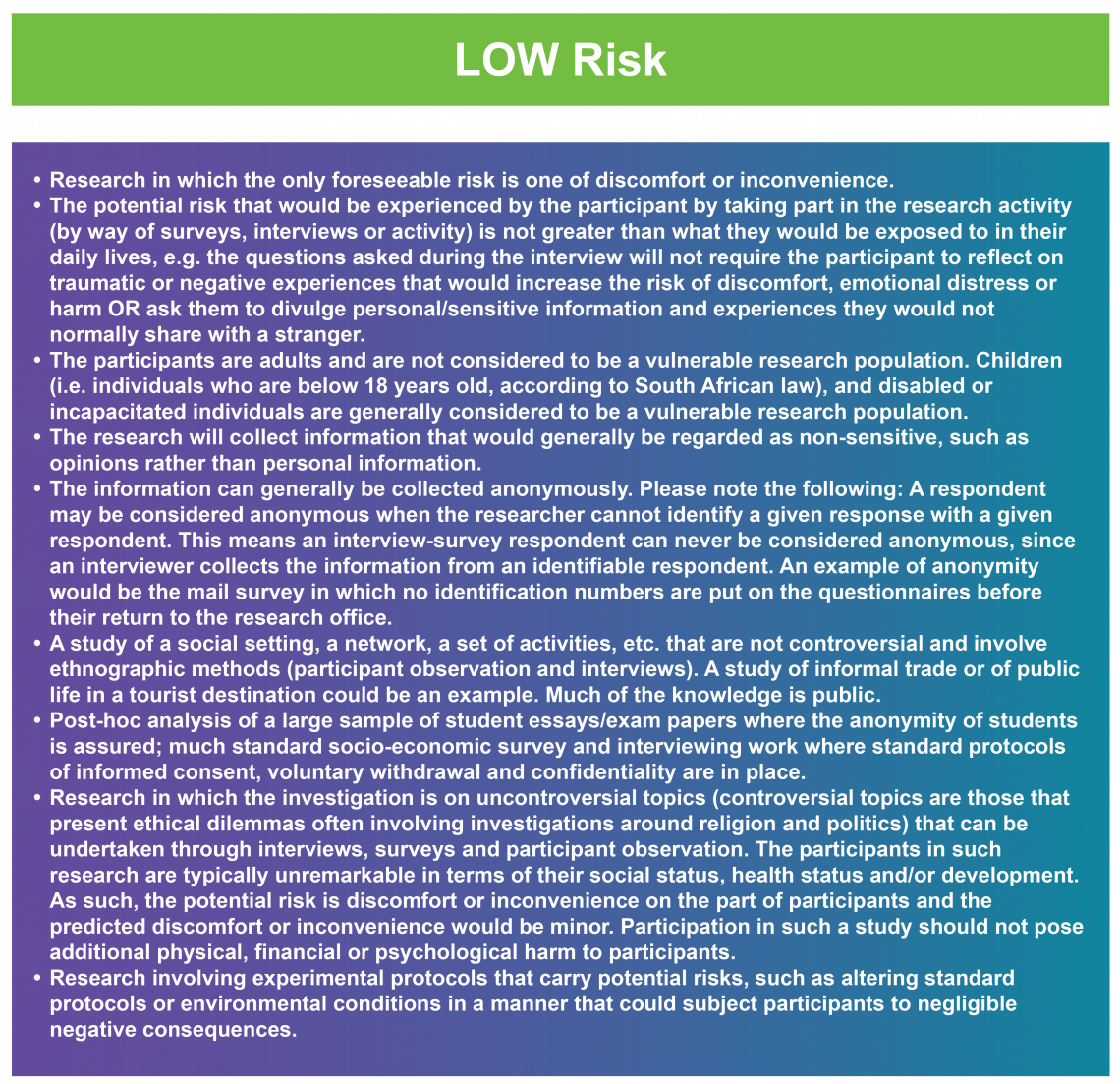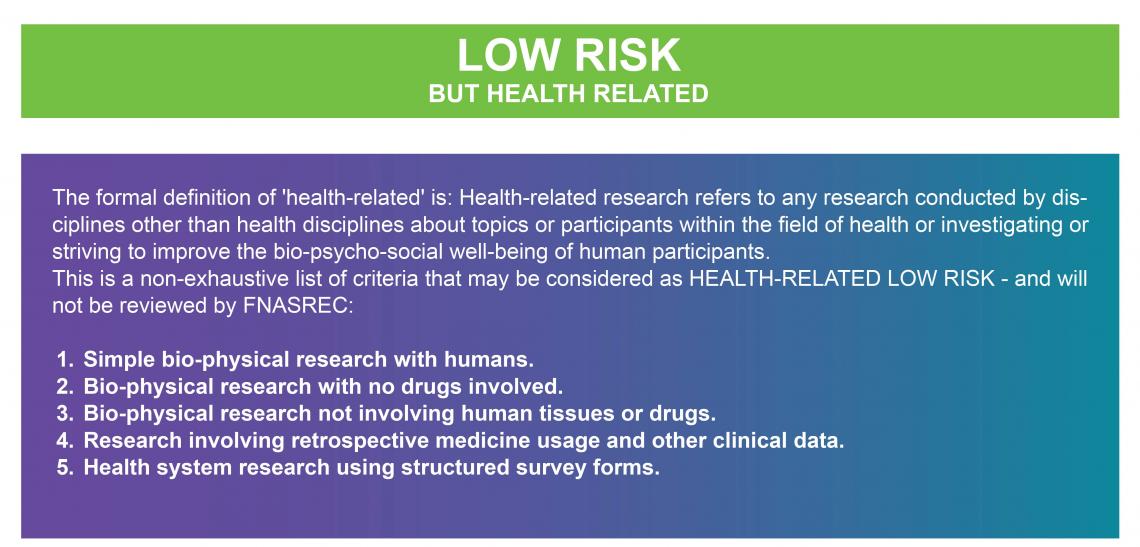Is my study a No risk or a Low risk study?
FNASREC deals with zero/ no-risk and low-risk studies in the Faculty of Natural and Agricultural Sciences that are not health-related.
The scientific review committee (internal committee in a School or Department that are subject matter experts) plays a central role in ensuring that the quality and potential ethical risk are promoted in the faculty. The committee needs to make sure that the proposed research meets the discipline’s requirements and suggests the relevant REC and the risk level.
The research proposal must include the details necessary for the REC to confirm the essential aspects of the research methods that might have ethical implications. The first aspect to consider is if the research topic falls outside the auspices of FNASREC. If the subject matter is human health and the research aims to speak to and inform health bodies or publish in health journals, the study must be submitted to HREC. This is true even if the risk level is zero. If animals or animal products are directly involved in the study, they must be submitted to Animcare or Animprod. If unsure, you should consult FNASREC.
The second consideration of the research proposal is the risk level. All aspects of risk need to be clearly articulated in the research proposal. The proposal also has to state how that risk will be managed. The following includes components of research that will impact the study’s risk level: human participants in the study, any direct involvement of animals, any potential impact on the environment, any sensitive topic or data set. Sufficient details should be provided in the research proposal to convince FNASREC that the risk level does not exceed their mandate (No/Low-Risk review). The strategies to manage the risk should also be mentioned specifically.
Currently, proof of relevant ethics training is required for low-risk studies submitted to FNASREC . This training outlines the potential risks and how to address them.
FNASREC only deals with No risk and Low risk studies


FNASREC does not deal with health-related, Medium or High Risk studies
If unsure of the nature of your study and if it is considered LOW RISK but health-related, use this decision key.



